In Saving Face, director Alice Wu crafts a tender, witty, and deeply cultural romantic comedy about love, family, and the invisible weight of expectations. Set within the close-knit Chinese-American community in New York, the film bridges two generations of women—each caught between tradition and desire, between who they’re expected to be and who they truly are.
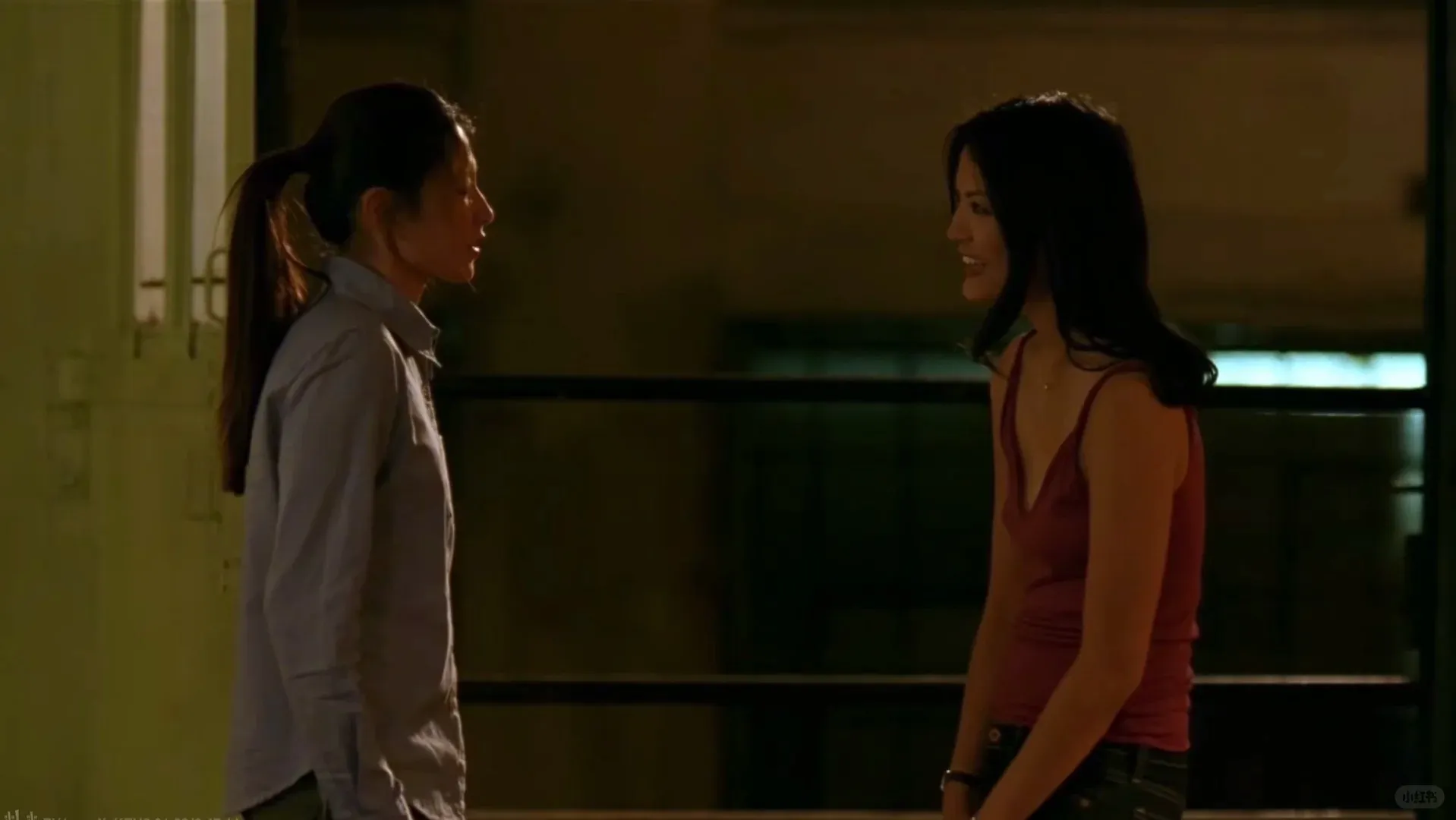
Wil (Michelle Krusiec), a young Chinese-American surgeon, lives her life quietly—devoted to her work, distant from her mother’s traditional matchmaking efforts, and hiding her sexuality from her conservative family. Her mother (played with grace and humor by Joan Chen) is the kind of parent who lives for “face”—the social reputation and propriety that hold together their immigrant world.
But everything turns upside down when Wil’s mother shows up at her apartment, pregnant and unmarried. Expelled from her parents’ home for bringing “shame” to the family, she moves in with her daughter, setting the stage for a multi-generational comedy of secrets and silent love.
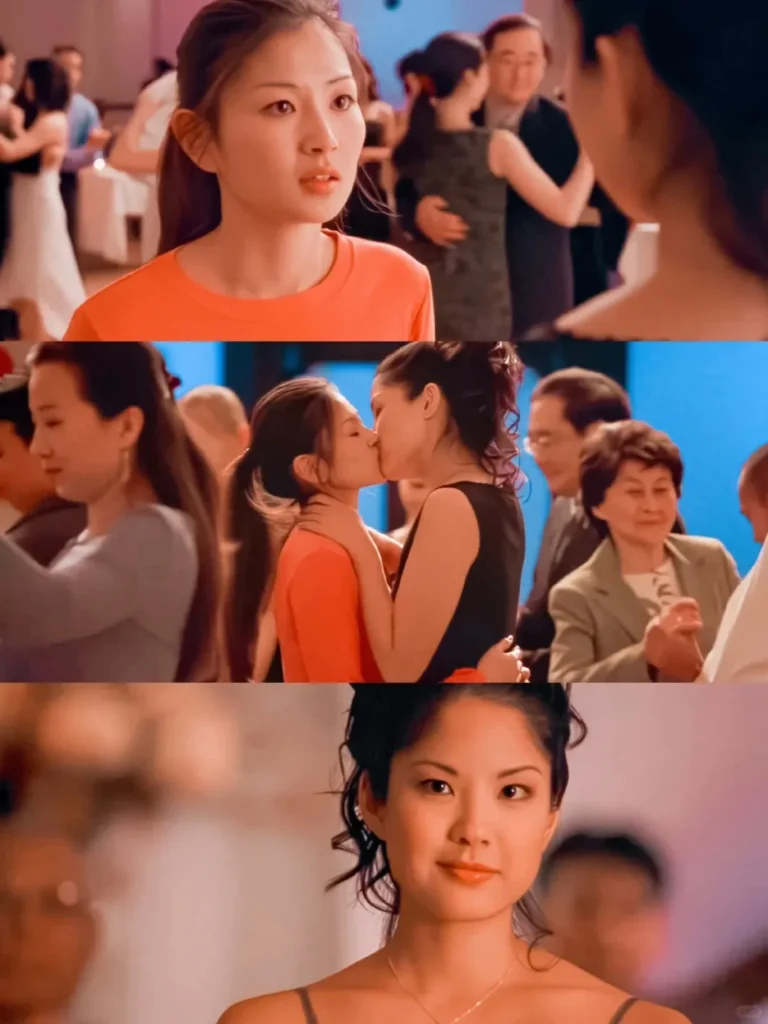
As Wil struggles to find a husband for her mother, she’s also secretly dating Vivian (Lynn Chen), a charismatic modern dancer who refuses to hide in the shadows. Their romance is sweet, playful, but constrained by Wil’s fear of disappointing her mother and community.
Between hospital shifts, awkward blind dates, and her mother’s domestic takeover, Wil’s double life collapses until the truth—both of her mother’s pregnancy and her own sexuality—can no longer stay hidden. What follows is not tragedy but reconciliation, with a heartfelt finale that lets love, finally, win over appearances.
Saving Face Cast
Charactor
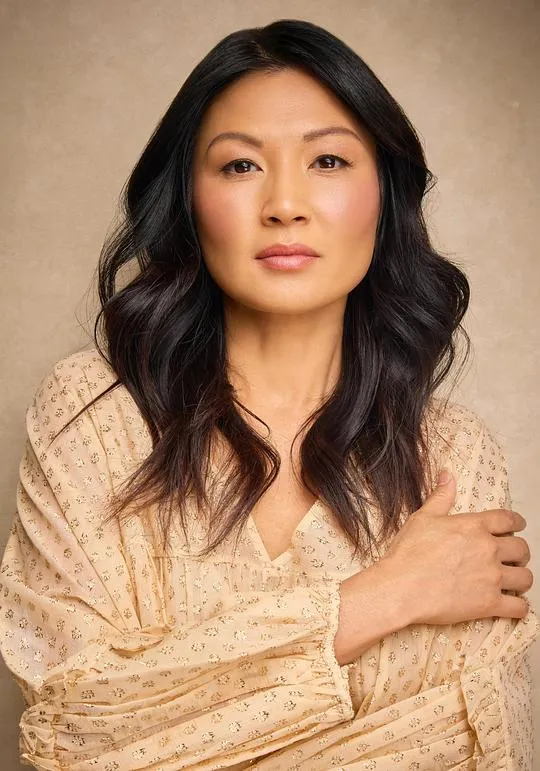
A reserved, ambitious surgeon navigating her sexuality under family pressure.
Michelle Krusiec
Michelle Krusiec, born in Taiwan and raised in the U.S., delivers a nuanced performance balancing humor and restraint. She later appeared in The Invitation (2015) and Hollywood (2020).
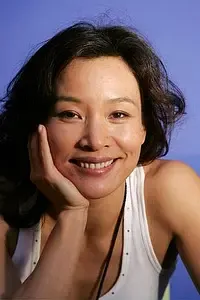
A middle-aged single mother whose unexpected pregnancy challenges her community’s moral codes.
Joan Chen
Joan Chen, one of China’s most internationally recognized actresses (The Last Emperor, Twin Peaks), brings poise and emotional gravity to the role, turning potential melodrama into heartfelt realism.
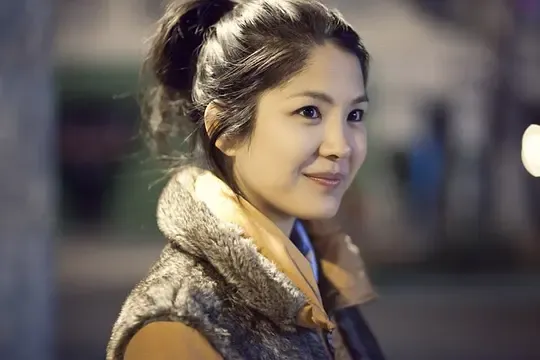
A confident modern dancer and Wil’s love interest, Vivian embodies independence and self-awareness.
Lynn Chen
Lynn Chen later became a filmmaker herself, directing I Will Make You Mine (2020), and has remained a prominent advocate for Asian-American representation.
Director
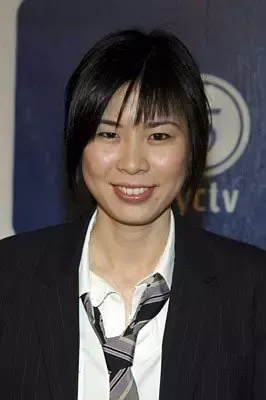
Alice Wu
Alice Wu is a Taiwanese-American filmmaker best known for her heartfelt portrayals of identity and love within Asian-American queer communities. Her debut Saving Face (2004) remains a pioneering lesbian romantic comedy for its gentle humor and cultural honesty. Sixteen years later, she returned with The Half of It (2020), a modern coming-of-age story that reaffirmed her gift for capturing quiet emotions and complex family bonds. Through both films, Wu has become a defining voice in Asian-American lesbian cinema.
BEST SCENES
📍The film’s emotional peak arrives during the community banquet, when Wil publicly kisses Vivian in front of her family and friends—a bold act of defiance and love. The once-muted doctor finally claims her truth, and the crowd’s silence says everything about courage in the face of tradition.
It’s not a grand revolution—but for Wil and her mother, it’s liberation enough.
Saving Face Review
Review
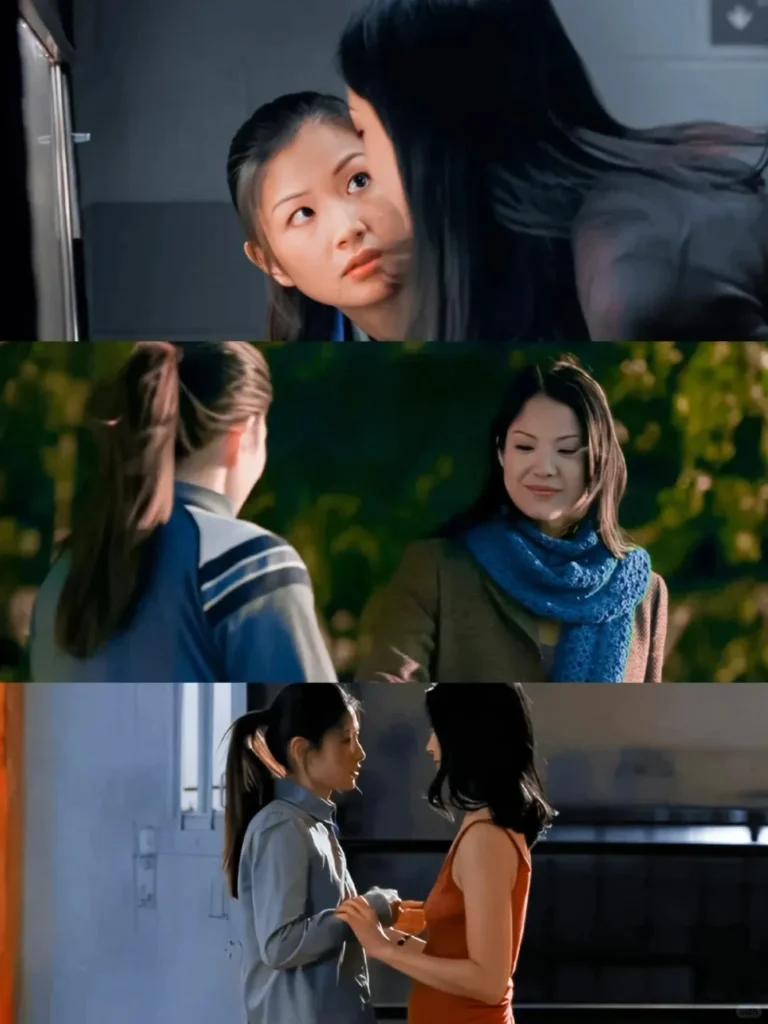
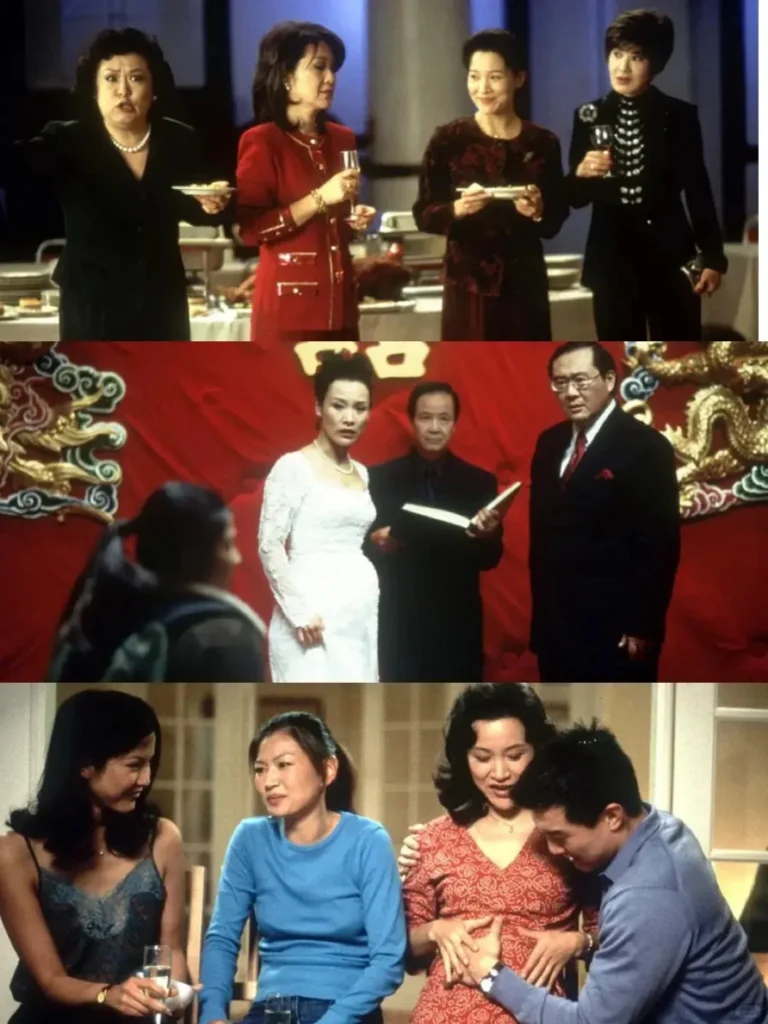
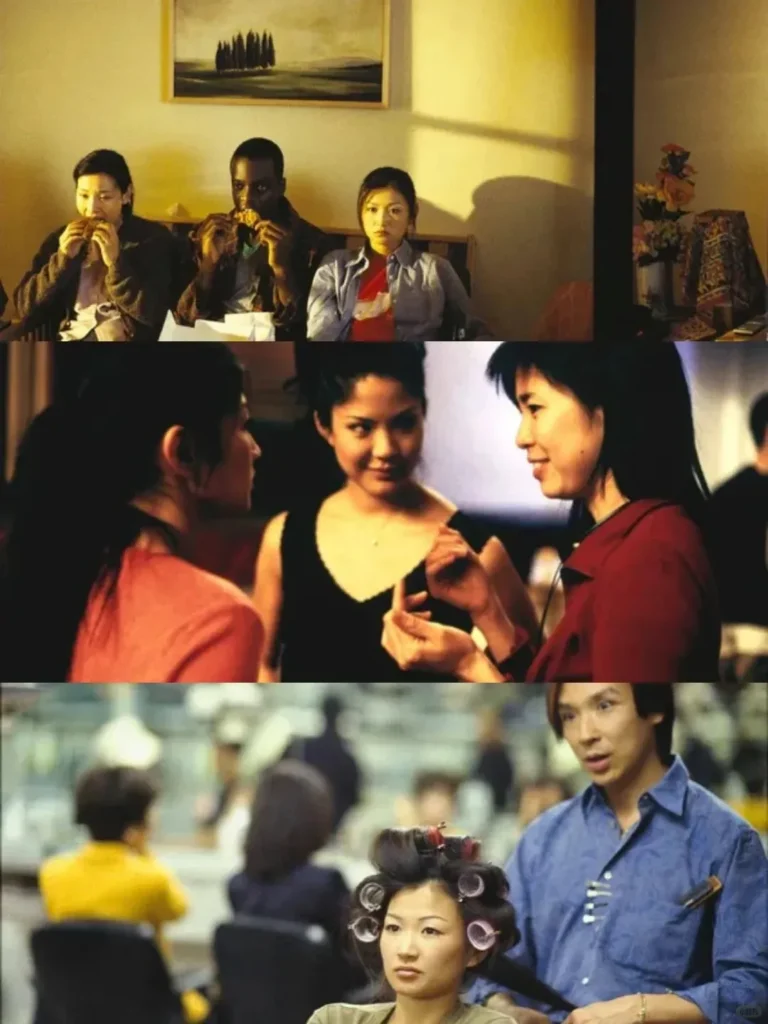
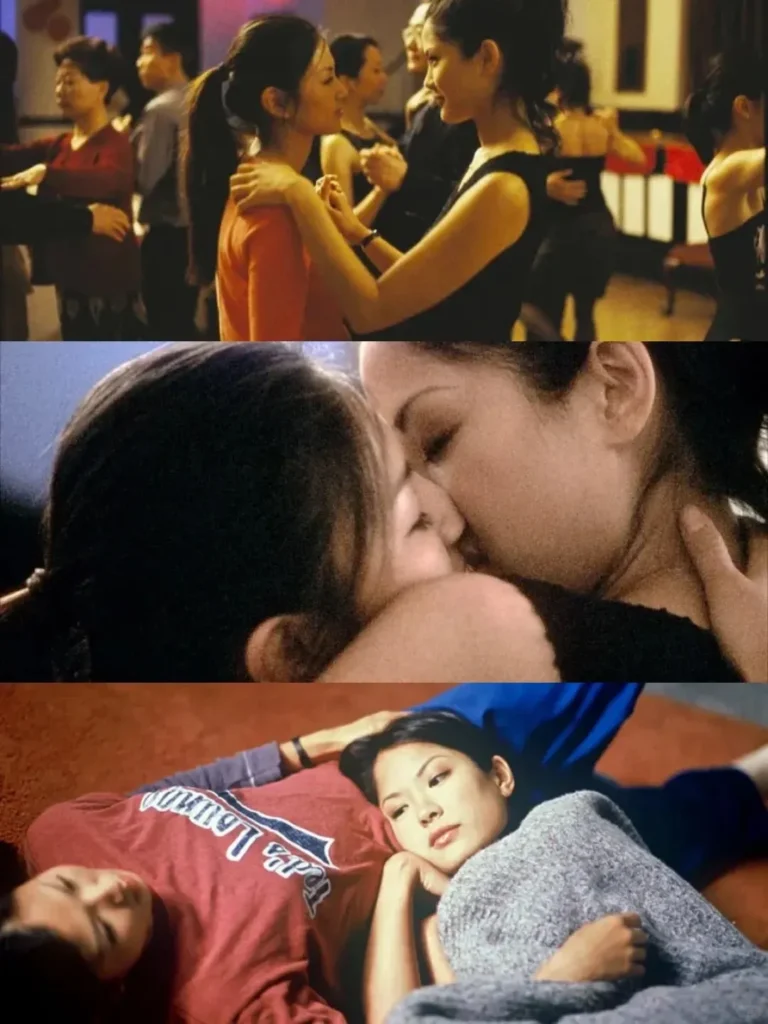
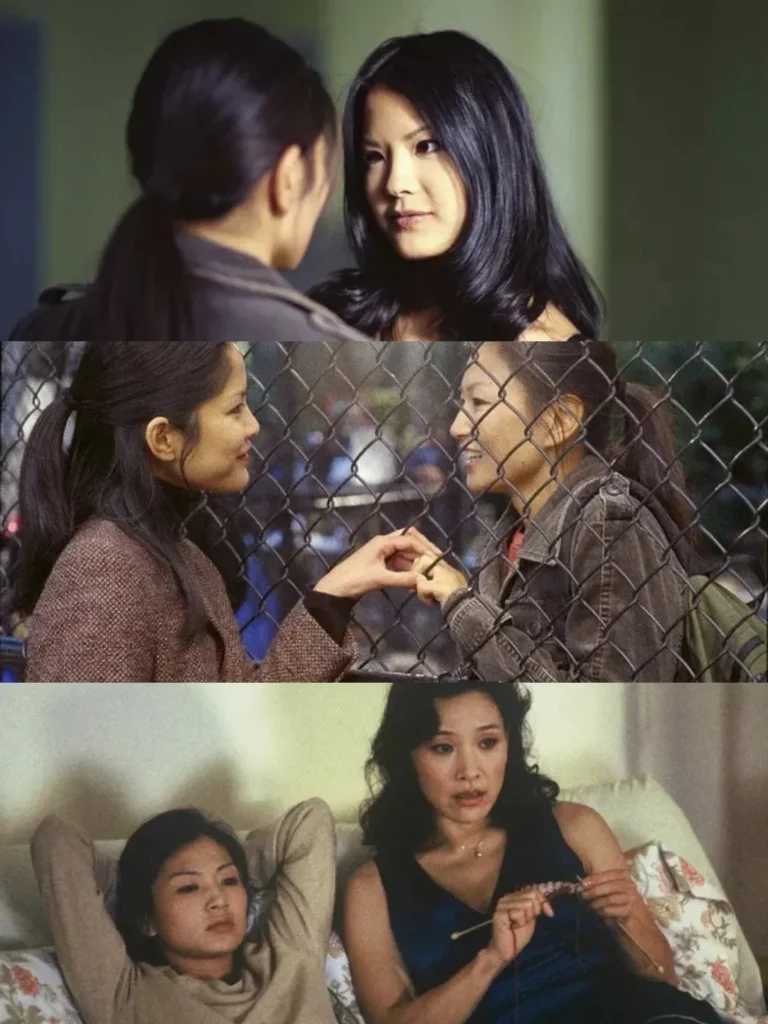
Alice Wu’s Saving Face is a gentle yet brave film—an intersection between the warmth of a family drama and the courage of a coming-out story.
Like Ang Lee’s The Wedding Banquet before it, the film examines Chinese notions of honor and the generational conflict between parents and children. But Wu gives the story a distinctly female gaze—through the intertwined journeys of a pregnant single mother and her closeted lesbian daughter.
The movie’s rhythm is soft and domestic; its humor is understated but piercing. Joan Chen embodies the archetype of the Chinese mother—demanding, proud, and emotionally repressed—yet here she’s also a woman rediscovering her own agency. Her arc mirrors her daughter’s: both women seek love outside the structures prescribed by their family.
Vivian, the dancer who falls for Wil, brings light and sensuality into the story. She’s bold, expressive, and unashamed of her desires—everything Wil struggles to be. The dynamic between them captures a rare authenticity: awkwardness, passion, fear, and the small, tender moments that define intimacy.
By the time Wil finally confesses, “Mom, I love you. And I’m gay,” we’ve already seen her exhaustion from years of hiding. Her mother’s reply—half denial, half resignation—encapsulates the complexity of love within immigrant families: “You can’t be gay. You’re my daughter.”
Yet the film doesn’t drown in sorrow. Its resolution, where mother, daughter, and even the once-judgmental grandfather share a meal with the daughter’s girlfriend, offers a cinematic fantasy of acceptance. But it’s one that feels deserved—a vision of reconciliation through empathy, humor, and courage.
Final Thoughts
Saving Face is a film about the masks we wear—out of duty, out of love, and out of fear. It’s about mothers and daughters finding their own definitions of happiness, even when the world insists otherwise.
Funny, warm, and quietly revolutionary, Alice Wu’s debut remains a landmark in queer Asian-American cinema—one that still speaks, twenty years later, to anyone who’s ever had to balance family, identity, and love.
Saving Face Information
Film Festival Recognition
Audience Award for Best Narrative Feature – San Francisco International Asian American Film Festival
Best First Feature Nominee – Independent Spirit Awards (2005)
Outstanding Film (Limited Release) Nominee – GLAAD Media Awards
Official Selection – Toronto International Film Festival (2004)
Widely praised for being one of the first major U.S. films to portray a Chinese-American lesbian romance with warmth and humor
